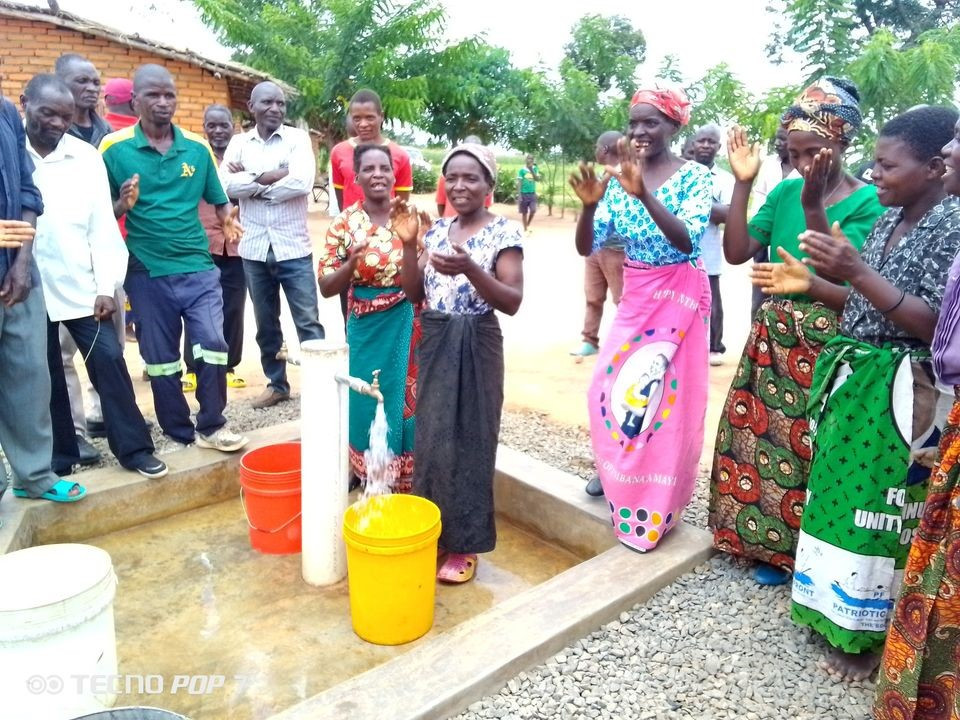In 2022, NACRO, with assistance from NAK Karitativ, a Germany based Faith-Based NGO, began to implement a Water, Sanitation and Hygiene (WASH) project in T/A Mduwa area, Mchinji district. Under the water component, 8 villages from 2 Group Village Heads Mtenje and Kalinde, translating into about 400 households (approximately 2,000 people) will benefit from the provision of clean and safe water by the end of the project through the installation and reticulation of solar based water pumping systems in the area.
According to Mavuto Dinala, chair for Water Users Association (WUA) for Mtenje GVH water system, before the project began, people from the area relied on unprotected shallow wells in dambos and rivers, where animals grazed and drank also. He further adds that community members especially women and girls had to spend at least 3 hours every day to get clean drinking water for
their families. Women had to wake up as early as 4.00 am in search of water for their households.
Health officials from Mikundi, the main health Centre in TA Mduwa, say that water-borne related diseases have been more prevalent in the area in recent years, accounting for over 50% of all outpatient department users, with diarrhoea disease alone accounting for 21% of illnesses attributed to drinking contaminated water.
However, with the coming of the WASH project in the area, life has completely changed for the better. Women no longer have to wake up early and spend a lot of time searching for water, nor drink from unprotected sources. They now take about three to five minutes to draw water from the taps, hence saving much of their time to work in their gardens. Water-borne diseases are now a
thing of the past. According to Mr. Yona Bendison from GVH Mtenje during a recent monitoring visit, before the project, a lot of men in the area were unable to provide for their households, as they had no tangible source of income, apart from farming which is not reliable anymore due to challenges related to climate change. He says that this is not the case anymore, as the project has
created some short-term employment opportunities to people in the area . With the money earned, men and women have been able to buy food for their families as well as provide school fees for their children. Furthermore, the project has also fostered unity among community members and leaders in the area through active and full community participation.

